Arms
  |
|
Earl of Deloraine was a title in the Peerage of Scotland. It was created in 1706 for Lord Henry Scott, second surviving son of James Scott, 1st Duke of Monmouth (illegitimate son of King Charles II by his mistress Lucy Walter) by Anne Scott, 1st Duchess of Buccleuch. He was made Lord Goldielands and Viscount of Hermitage at the same time, also in the Peerage of Scotland. Two of his sons, the second and third Earls, succeeded in the title. The titles became extinct on the death of the latter's son, the fourth Earl, in 1807.
The titles come from places in the Scottish Borders: Deloraine is where the Deloraine Burn joins the Ettrick Water, between Ettrick and Ettrickbridge; Hermitage Castle is north of Newcastleton; and Goldielands is a peel tower near where the Borthwick Water joins the River Teviot, to the southwest of Hawick.
  |
|

James Scott, 1st Duke of Monmouth, 1st Duke of Buccleuch, KG, PC was a Dutch-born English nobleman and military officer. Originally called James Crofts or James Fitzroy, he was born in Rotterdam in the Netherlands, the eldest illegitimate son of Charles II of England, Scotland, and Ireland with his mistress Lucy Walter.

The House of Stuart, originally Stewart, was a royal house of Scotland, England, Ireland and later Great Britain. The family name comes from the office of High Steward of Scotland, which had been held by the family progenitor Walter fitz Alan. The name Stewart and variations had become established as a family name by the time of his grandson Walter Stewart. The first monarch of the Stewart line was Robert II, whose male-line descendants were kings and queens in Scotland from 1371, and of England and Great Britain from 1603, until 1714. Mary, Queen of Scots, was brought up in France where she adopted the French spelling of the name Stuart.

Duke of Argyll is a title created in the peerage of Scotland in 1701 and in the peerage of the United Kingdom in 1892. The earls, marquesses, and dukes of Argyll were for several centuries among the most powerful noble families in Scotland. As such, they played a major role in Scottish history throughout the 16th, 17th, and 18th centuries. The Duke of Argyll also holds the hereditary titles of chief of Clan Campbell and Master of the Household of Scotland.

The title Duke of Buccleuch, formerly also spelt Duke of Buccleugh, is a title in the Peerage of Scotland created twice on 20 April 1663, first for James Scott, 1st Duke of Monmouth and second suo jure for his wife Anne Scott, 4th Countess of Buccleuch. Monmouth, the eldest illegitimate son of Charles II was attainted after rebelling against his uncle James II and VII, but his wife's title was unaffected and passed on to their descendants, who have successively borne the surnames Scott, Montagu-Scott, Montagu Douglas Scott and Scott again. In 1810, the 3rd Duke of Buccleuch inherited the Dukedom of Queensberry, also in the Peerage of Scotland, thus separating that title from the Marquessate of Queensberry.

The title Duke of Queensberry was created in the Peerage of Scotland on 3 February 1684 along with the subsidiary title Marquess of Dumfriesshire for the 1st Marquess of Queensberry. The Dukedom was held along with the Marquessate of Queensberry until the death of the 4th Duke in 1810, when the Marquessate was inherited by Sir Charles Douglas of Kelhead, 5th Baronet, while the Dukedom was inherited by the 3rd Duke of Buccleuch. Since then the title of Duke of Queensberry has been held by the Dukes of Buccleuch.

Lord Napier, of Merchistoun, is a title in the Peerage of Scotland. It was created in 1627 for Sir Archibald Napier, 1st Baronet. Earlier that year, he already held the Napier Baronetcy, of Merchistoun in the County of Midlothian, created in the Baronetage of Nova Scotia. The titles remained united until 1683, when the Baronetcy became dormant. It was revived in the early 19th century and is now held by another branch of the Napier family. Between 1683 and 1686, the Lords of Napier also held the Nicolson Baronetcy, of Carnock in the County of Stirling, and since 1725 the Scott Baronetcy, of Thirlestane in the County of Selkirk, both baronetcies created in the Baronetage of Nova Scotia. The latter one is held till today. Additionally, the tenth Lord was created Baron Ettrick, of Ettrick in the County of Selkirk in the Peerage of the United Kingdom on 16 July 1872.

Baron Montagu of Beaulieu, in the County of Hampshire, is a title in the Peerage of the United Kingdom. It was created in 1885 for the Conservative politician Lord Henry Montagu Douglas Scott, who had earlier represented Selkirkshire and South Hampshire in the House of Commons. He was the second son of Walter Montagu Douglas Scott, 5th Duke of Buccleuch. His son, the second Baron, sat as a Conservative Member of Parliament for New Forest. The 3rd Baron Montagu of Beaulieu was one of the ninety elected hereditary peers that remain in the House of Lords after the passing of the House of Lords Act 1999, and sat on the Conservative benches. As descendants of the 5th Duke of Buccleuch, the Barons Montagu of Beaulieu are also in remainder to this peerage and its subsidiary titles.

Hermitage Castle is a semi-ruined castle in the border region of Scotland. It is under the care of Historic Scotland. The castle has a reputation, both from its history and its appearance, as one of the most sinister and atmospheric castles in Scotland.

Clan Scott is a Scottish clan and is recognised as such by the Lord Lyon King of Arms. Historically the clan was based in the Scottish Borders.

Anne Scott, 1st Duchess of Buccleuch was a wealthy Scottish peeress. After her father died when she was a few months old, and her sisters by the time she was 10, she inherited the family's titles. She was married to James Scott, 1st Duke of Monmouth, and the couple had six children, only two of whom survived past infancy.
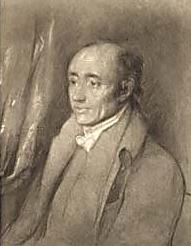
Charles William Henry Montagu-Scott, 4th Duke of Buccleuch and 6th Duke of Queensberry, KT, styled Earl of Dalkeith until 1812, was a British landowner, amateur cricketer and Tory politician.
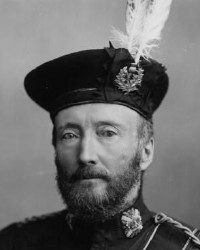
William Henry Walter Montagu Douglas Scott, 6th Duke of Buccleuch and 8th Duke of Queensberry was a Scottish Member of Parliament and peer. He was the paternal grandfather of Princess Alice, Duchess of Gloucester, and the maternal great-grandfather of Prince William of Gloucester and Prince Richard, Duke of Gloucester.
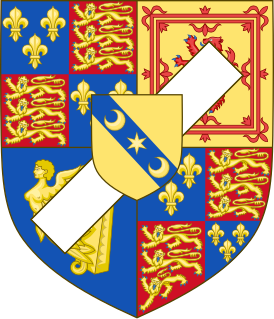
Francis Scott, 2nd Duke of Buccleuch, KT, FRS was a Scottish nobleman.

Richard Walter John Montagu Douglas Scott, 10th Duke of Buccleuch and 12th Duke of Queensberry,, styled as Lord Eskdaill until 1973 and as Earl of Dalkeith from 1973 until 2007, is a Scottish landholder and peer. He is the Duke of Buccleuch and Queensberry, as well as Chief of Clan Scott. He is the heir male of James, Duke of Monmouth, the eldest illegitimate son of Charles II and his mistress, Lucy Walter, and more remotely in a direct male line from Alan of Dol, who came to Britain in 1066 with William the Conqueror.
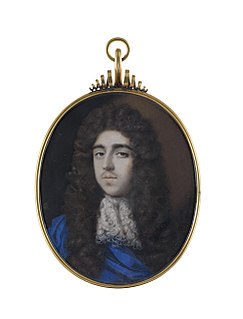
Sir James Scott, Earl of Dalkeith KT was a Scottish nobleman and politician. He was the son of James Scott, 1st Duke of Monmouth, and Anne Scott, 1st Duchess of Buccleuch. He was also the grandson of Charles II of England, Scotland and Ireland. On 2 January 1693/94 he married Lady Henrietta Hyde, daughter of Laurence Hyde, 1st Earl of Rochester, and Henrietta Hyde, Countess of Rochester. They had six children:

Major-General Henry Scott, 1st Earl of Deloraine KB was a Scottish peer and army officer.
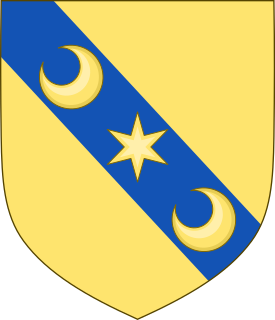
Walter Scott, 4th Baron of Buccleuch (1549–1574) was head of the Border family of Scott and, despite his youth, played a prominent part in the turbulent politics of 16th century Scotland.

The Montagu Douglas Scott family is an aristocratic family in the United Kingdom. Founded in the 15th century as the Scott family, it has spawned numerous aristocratic titles, most notably the dukedom of Buccleuch. A prominent member of the family during the 17th century was James Scott, 1st Duke of Monmouth, of Monmouth Rebellion fame. The family name was briefly Montagu-Scott, before the 5th Duke adopted its current form. It is one of only a handful of families in the English-speaking world to have an unhyphenated triple-barrelled name.

Alexander Ramey-Home, 10th Earl of Home, styled Lord Dunglass from 1781 to 1786, was a British politician and nobleman. He served as a representative peer for Scotland between 1807 and 1841. He gained the rank of Colonel in the service of the Berwickshire militia. He held office as the first Lord-Lieutenant of Berwickshire between 1794 and 1841.
Henry James Montagu-Scott, 2nd Baron Montagu of Boughton